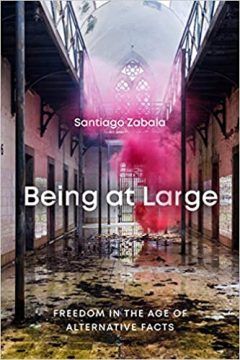From McGill-Queen’s University Press:
 Q: One of the central arguments of your book is that the “greatest emergency is the absence of emergency.” Could you please clarify this in relation to the ongoing pandemic caused by the coronavirus?
Q: One of the central arguments of your book is that the “greatest emergency is the absence of emergency.” Could you please clarify this in relation to the ongoing pandemic caused by the coronavirus?
Santiago Zabala: This thesis does not mean that a crisis such as the coronavirus is not a fundamental emergency that we must confront at all levels. It simply suggests the greatest emergency are the ones we do not confront. These include, among others, economic inequality, refugee crises, and climate change. Despite the warnings of scientists and activists since the 1970s, climate change is responsible for the death of seven million human beings every year because of air pollution. We can only hope climate change might also become an “emergency,” fought with the same unified purpose by many people as is now. What is dramatic about COVID-19 is that it was an “absent emergency” until very recently; just one year ago the WHO director-general, Dr. Tedros Adhanom Ghebreyesus, warned us that the “threat of pandemic influenza is ever-present.” Unfortunately we did not listen and now we find ourselves facing an existential threat.
More here.
